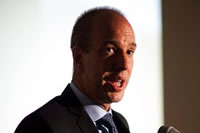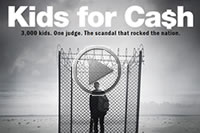 Under U.S. Supreme Court mandate to release prisoners from its overcrowded system, lawyers for the state of California argued recently that a release of low-risk, non-violent prisoners would severely deplete the state’s inmate workforce.
Under U.S. Supreme Court mandate to release prisoners from its overcrowded system, lawyers for the state of California argued recently that a release of low-risk, non-violent prisoners would severely deplete the state’s inmate workforce.
Why is inmate labor in such high demand? In a word, wildfires. In a state plagued by damaging fires that threaten populated areas, the costs of inmate labor for this dangerous work save the state more than one billion dollars a year. California uses a 2-for-1 time credit system that allows inmates who perform well in certain jobs earlier release. After trying to alter this program to persuade prisoners into taking firefighting jobs if they were deemed physically able, a federal court in California recently ordered the state to expand the credit against their wishes.
Is cheap labor a leading cause of mass incarceration? Read more at thinkprogress.org![]()

 The list of supporters of the push to end the United State’s policy of mass incarceration almost seems to be a list of combatants until it dawns on the reader that they’re all on the same side. From the Koch brothers to George Soros and Newt Gingrich to the ACLU, prison reform is one central issue even the strongest supporters of both political parties can agree on.
The list of supporters of the push to end the United State’s policy of mass incarceration almost seems to be a list of combatants until it dawns on the reader that they’re all on the same side. From the Koch brothers to George Soros and Newt Gingrich to the ACLU, prison reform is one central issue even the strongest supporters of both political parties can agree on. The Marshall Project, a new nonprofit news organization focused on the American criminal justice system went live over the weekend, promising daily articles on news events, writings from inmates, a newsletter, and ambitious projects.
The Marshall Project, a new nonprofit news organization focused on the American criminal justice system went live over the weekend, promising daily articles on news events, writings from inmates, a newsletter, and ambitious projects. For most policy issues in the United States, change can be brought about in four ways: popular movement, Congress, legal challenge in the courts, and finally, by executive order. While the popular movement in favor of prison reform is steadily growing, and the issue remains one of few being addressed in the bipartisan Congress, neither force has proven strong enough to demand meaningful change. Several recent court decisions have favored those incarcerated, but mostly on the state level.
For most policy issues in the United States, change can be brought about in four ways: popular movement, Congress, legal challenge in the courts, and finally, by executive order. While the popular movement in favor of prison reform is steadily growing, and the issue remains one of few being addressed in the bipartisan Congress, neither force has proven strong enough to demand meaningful change. Several recent court decisions have favored those incarcerated, but mostly on the state level. Although it wasn’t nationally discussed during the run-up to November’s elections, prison reform was on the minds of many when they went to the polls. Voters in California approved Proposition 47, which is set to release thousands of inmates from prisons across the states, and voters in Oregon, Alaska, and Washington D.C. voted to legalize Marijuana, the cause of many incarcerations across the country.
Although it wasn’t nationally discussed during the run-up to November’s elections, prison reform was on the minds of many when they went to the polls. Voters in California approved Proposition 47, which is set to release thousands of inmates from prisons across the states, and voters in Oregon, Alaska, and Washington D.C. voted to legalize Marijuana, the cause of many incarcerations across the country. With the recent passage of Proposition 47 in California, set to free thousands of current inmates as their crimes are downgraded from felonies to misdemeanors, take a look back at Prop 36, a 2012 measure that greatly reformed the state’s three strikes law.
With the recent passage of Proposition 47 in California, set to free thousands of current inmates as their crimes are downgraded from felonies to misdemeanors, take a look back at Prop 36, a 2012 measure that greatly reformed the state’s three strikes law. With a new fifty million dollar foundation grant, the ALCU is set to take on prison reform in an eight-year political campaign. The funds from George Soros’s Open Society Foundations are set to help lower incarceration rates that have tripled since 1980 by getting involved in local, state, and national elections.
With a new fifty million dollar foundation grant, the ALCU is set to take on prison reform in an eight-year political campaign. The funds from George Soros’s Open Society Foundations are set to help lower incarceration rates that have tripled since 1980 by getting involved in local, state, and national elections. In 2008, a scandal was born when it was revealed that two Luzerne County, PA judges were accused, and later convicted of incarcerating minors for personal financial gain. A 2013 documentary, several years in the making, is still making the rounds and bringing the entire story to light.
In 2008, a scandal was born when it was revealed that two Luzerne County, PA judges were accused, and later convicted of incarcerating minors for personal financial gain. A 2013 documentary, several years in the making, is still making the rounds and bringing the entire story to light. At the Alabama Baptist Convention this week, a resolution was passed calling for reforms in the state. Seeking to end overcrowding and abuses within the Alabama prison system, the convention called on political figures, the state legislature, and other church groups to seek ways to end these abuses in Alabama prisons.
At the Alabama Baptist Convention this week, a resolution was passed calling for reforms in the state. Seeking to end overcrowding and abuses within the Alabama prison system, the convention called on political figures, the state legislature, and other church groups to seek ways to end these abuses in Alabama prisons. The United States Supreme Court is currently hearing the case of John L. Yates, a fisherman convicted of a federal crime for throwing three undersize red grouper back into the Gulf of Mexico. Yates was convicted of violating the Sarbanes-Oxley Act of 2002, a federal law aimed primarily at white-collar crime. The law imposes a maximum sentence of 20 years for the destruction of “any record, document or tangible object” in order to obstruct an investigation.
The United States Supreme Court is currently hearing the case of John L. Yates, a fisherman convicted of a federal crime for throwing three undersize red grouper back into the Gulf of Mexico. Yates was convicted of violating the Sarbanes-Oxley Act of 2002, a federal law aimed primarily at white-collar crime. The law imposes a maximum sentence of 20 years for the destruction of “any record, document or tangible object” in order to obstruct an investigation.